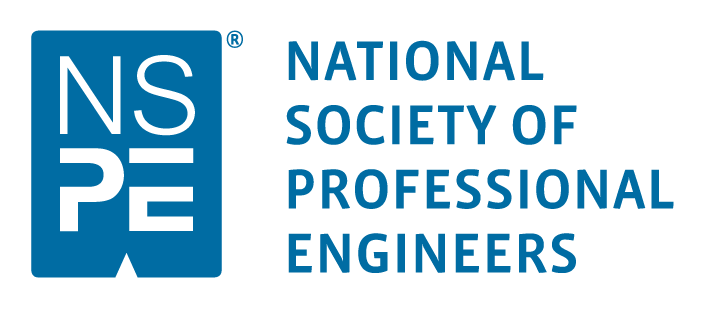Which Costs More: NJDEP Permit Compliance or Non-Compliance? (Infographic)
Achieving New Jersey Department of Environmental Protection (NJDEP) permit compliance has long been a requirement for commercial and industrial facilities in the Garden State. It’s a mandate that aims to ensure that all businesses operating in New Jersey have the operational capabilities to adhere with federal and state standards regarding disposal of toxic materials, emission of air pollutants, and sustainable use of farmland and open spaces.
For the past recent years, the increased focus on environmental concerns has pushed the NJDEP to tighten further their regulations, which leave the facilities with the option to comply in order to operate legally or suffer the insurmountable costs associated with non-compliance.
The Cost of NJDEP Permit Compliance
The high costs of complying with NJDEP go beyond annual fees, inspection fees, and other costs associated with regulatory permits and approvals paid on behalf of a facility.
In order for facilities to be compliant, investments in new technologies might need to be made and some key aspects of the operations may need to be overhauled. For facilities that utilize combustion engines in their business, Toxic Release Inventory (TRI) thresholds must continuously be updated and streamlined to ensure accurate reporting.
For facilities with underground storage tanks (USTs) of 2,001 gallons or more, the NJDEP adopted a new requirement in 2018 which mandate these facilities to have a Licensed Operators on-site. To be a licensed operator, the personnel must take a class and pass an ICC examination, which again, will cost the business essential time and money.
Additionally, facilities must factor in the cost of site inspections and the personnel and time expenses associated with these inspections. They will have to hire professionals to conduct sampling, testing, recording data, keeping permits and approvals organized, and dealing with regulators. They might also need to hire new staff or increase the roles of their current employees.
Frequent site inspections could disrupt operations of the facility for some time and distract personnel from core duties, which could detrimentally affect its revenue and profit.
The True Cost of Non-Compliance With NJDEP
While there might be substantial costs to achieve NJDEP permit compliance, the charges of failing to do so are much greater to both the business and the environment.
The primary cost of non-compliance is the personal liability of the business owners. Proper conduct and ethics are a big part of compliance and individuals are responsible for following the rules for their business. In 2014, the NJDEP Air Compliance and Enforcement conducted 953 enforcement actions that penalized the owners of non-compliant facilities across New Jersey.
One major compliance hurdle for most New Jersey facilities is their limited knowledge about the NJDEP regulations that apply to their business. Not counting on a team of experts can have detrimental costs to the business. Ideally, everyone should be educated on what compliance means and how it can affect their role and the overall success of the organization.
Without a team of experts to guide them, facilities are more likely to suffer the consequences of non-compliance due to failure to prepare, organize, and submit all the necessary documentation to NJDEP in a timely manner.
While NJDEP allows firms to submit their air emission statements and air permit applications online through RADIUS, conducting final on-site examinations and gathering, analyzing, and collating results as per the reporting standards of NJDEP are tasks that can’t be easily done by facilities themselves. Failing to submit reports to NJDEP on time can lead to penalties which could be much higher than if the business has had the expertise of environmental consulting professionals.
Lastly, non-compliance may cost facilities business opportunities. Compliance is fundamental for companies to participate in public bidding, obtain specific licenses, render services to other companies, or even be sold to another company.
Nevertheless, the path to bring a non-compliant organization to a compliant status may be filled with unpleasant surprises, such as appointed compliance directors that left the company and were never replaced, and air emission statements not being filed for extended periods. Non-compliance issues are too much of a risk for potential investors to tolerate, which might lead the facility to its eventual bankruptcy.
It’s More Than Just Complying With NJDEP
The New Jersey environment may be the obvious benefactor of strict NJDEP regulations. However, commercial businesses and industrial facilities, the citizen, and all institutions of the Garden State benefit from following the environmental standards set by NJDEP.
By seeking the help of professionals specializing in environmental consulting, organizations can optimize their energy consumption and maximize their profit while complying with related laws and regulations. Through careful investigation and analysis, environmental consultants can help improve the sustainability of every aspect of their operations, which ultimately results in reduced energy waste in the building, cutting costs along the way.
These professionals can also help businesses to initiate projects that will involve all stakeholders of the organization, including employees and their customers. In doing so, companies can help promote their brand as eco-friendly and efficient, potentially attracting more New Jerseyans who are sensitive in considering environmental issues before patronizing any company.
Lockatong Engineering tracks the ongoing development of new and changing NJDEP regulations and advises our clients with up-to-date strategies to efficiently achieve NJDEP permit compliance. To learn more about our environmental services, visit our website at www.lockatong.com.








